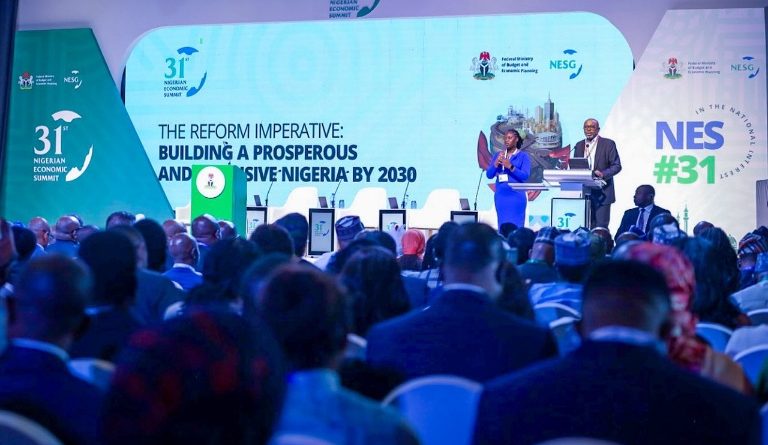AgriTech, open data, critical to Nigeria’s digital economy – stakeholders
Stakeholders in the Information and Communication Technology (ICT) sector have identified agricultural technology (AgriTech) and open data platforms as essential tools for advancing Nigeria’s digital economy, particularly in promoting inclusion and improving rural development.
Speaking at the session titled “Design Workshops Building Productive Sectors: Investing in the Digital Economy” during the 31st Nigerian Economic Summit (NESG) in Abuja,
Toluwaleke Adenmosun, senior partner at Verraki, said agriculture offers an opportunity for digital transformation.
“Some groups proposed open data platforms to improve the sourcing of agricultural commodities, while others emphasized the use of AgriTech to simplify and formalize the agricultural value chain,” she said.
Adenmosun also raised concerns about the lack of transparency in tax and levy structures affecting businesses. She called for digital tools to streamline compliance.
“Industry players face challenges not only with formal taxes but also with various levies and charges. A simple platform that outlines required payments and confirms when they are made can be implemented quickly and would address this,” she said.
She added that successful implementation requires clear leadership, whether from the public or private sector.
“It’s not solely a government responsibility. Someone must take ownership, drive execution, and raise awareness among farmers and stakeholders,” she said.
Participants also noted the need for awareness campaigns, as many farmers remain unaware of digital tools that can boost productivity and improve market access.
Olabode Ojo, vice president of Global Independent Connect Limited (GICL), a subsidiary of IHS Towers Nigeria, reaffirmed the company’s commitment to expanding digital infrastructure in underserved areas.
“At GICL and IHS, our goal is to provide the infrastructure to support Nigeria’s digital economy,” said Ojo.
He noted that the company has deployed over 600 rural connectivity sites across 26 states and installed more than 16,000 kilometers of fiber optic cables, supporting mobile technologies such as 2G, 3G, and 4G.
“People in these areas now have access to education, healthcare, and digital financial services,” he said. “This supports broader development.”
Ojo also referenced government plans led by the Federal Ministry of Communications, Innovation and Digital Economy to deploy 90,000 kilometers of fiber optic infrastructure and establish 7,000 rural telephony sites.
“These plans are ambitious but achievable,” he said. “We are ready to collaborate with the government to help make them a reality.”
While agriculture is not GICL’s core focus, Ojo acknowledged its role in the digital economy and the importance of infrastructure in enabling farmers’ access to data.
“These goals are within reach with collaboration from all stakeholders,” he said. “We must stay focused and work together to achieve them.”
With continued investment from both public and private sectors, stakeholders agreed that AgriTech, open data, and rural connectivity are vital to building a more inclusive digital economy in Nigeria.

